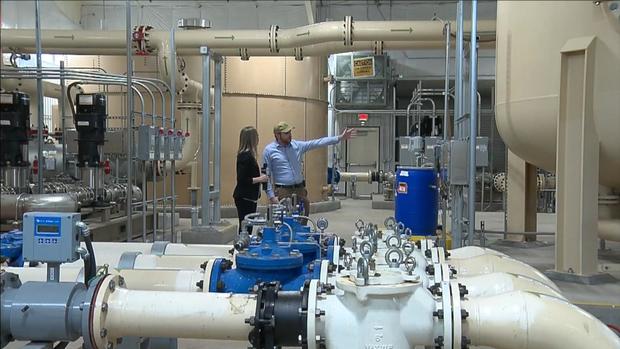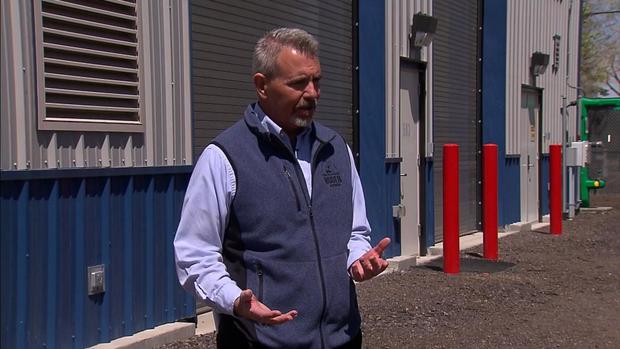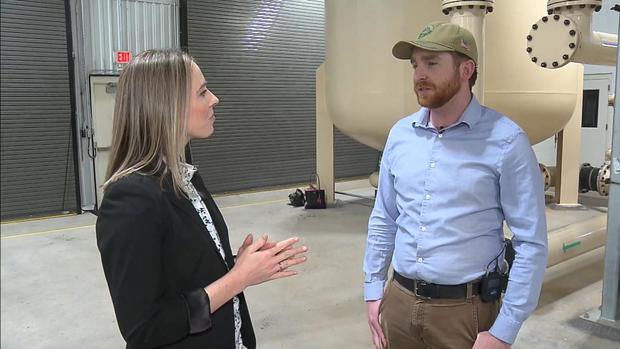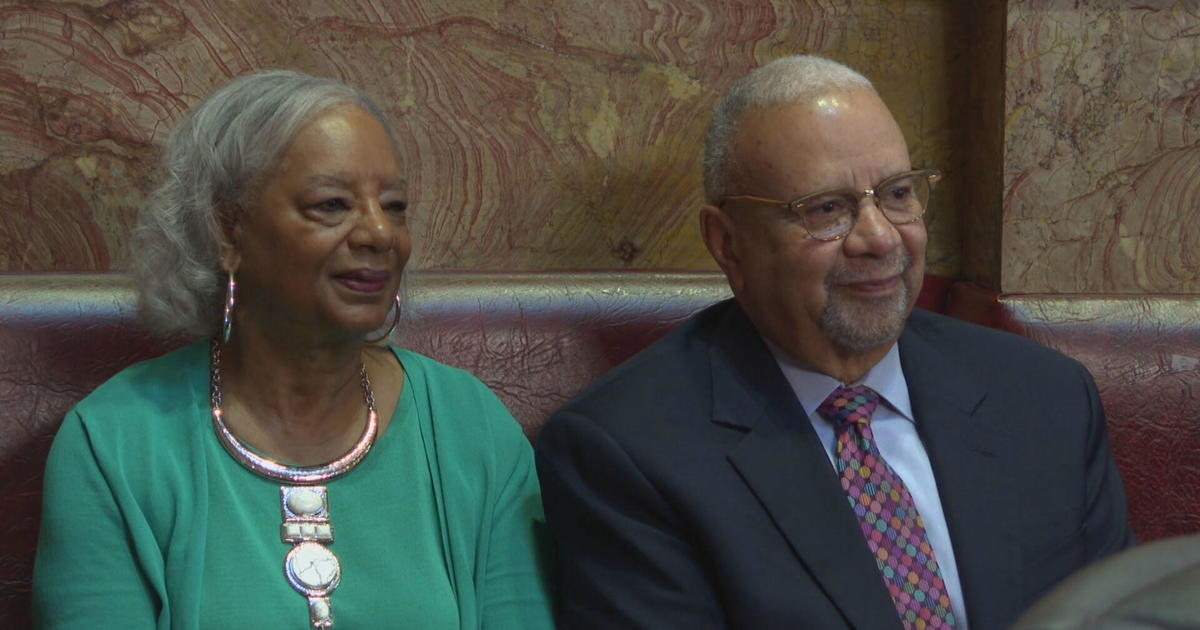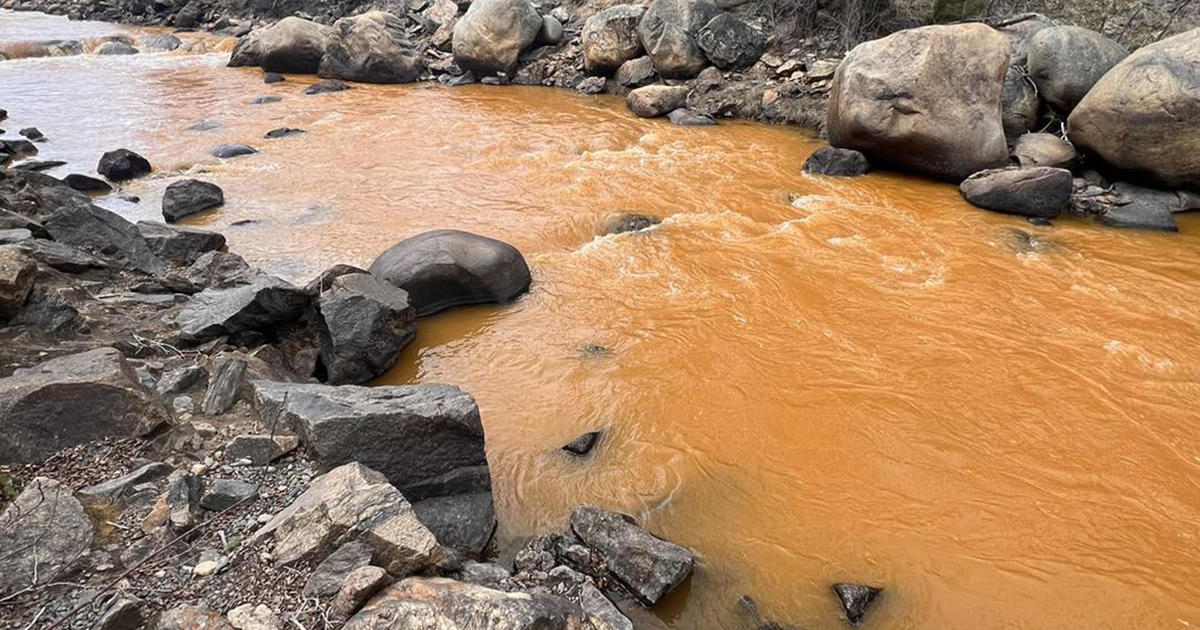U.S. Air Force pays $9 million for cutting-edge water treatment in Fountain following PFAS contamination concerns
CBS News Colorado has learned the U.S. Air Force paid $9 million for a new water treatment facility in the city of Fountain, a community south of Colorado Springs, due to past military activities that may have contaminated the city's water supply, which some residents claimed made them sick.
Fountain city officials say the facility has been in the making since 2016, when the EPA announced how harmful per- and poly-fluoroalkyl substances, or PFAS, could be for human health at certain levels in drinking water.
"In May of 2016, I believe, that's when the EPA came out with their health advisory limit, and we knew at that time that the levels that were tested in our groundwater were higher than the EPA health advisory limits," said Dan Blankenship, the city's director of utilities. "So, we immediately shut down our water wells and started to do more investigation, and that's when we began to reach out to the U.S. Air Force to talk about how we might mitigate the impacts of the PFAS in our groundwater."
PFAS are called forever chemicals, because they don't easily break down in the body, and ingesting the chemicals can sometimes cause health problems including cancer and birth defects.
PFAS can be found in a number of household items, including waterproof clothing and nonstick cookware. The chemicals are also used in firefighting foams.
The city sits just south of the now Peterson Space Force Base, which used to be an Air Force base.
A spokesperson for the base told CBS News Colorado in an email, "the Air Force has determined that its activities on Peterson Space Force Base may be, among others, a potential source of the PFOS/PFOA contamination affecting Fountain drinking water wells, and that it therefore has authority and responsibility to provide a response to include the construction of a treatment system."
Other communities nearby may also have been affected. Testing records from 2020 show the Security Water District, just next door to the north of Fountain, had levels of one PFAS compound, called PFOS, that were 235 times higher than the newly proposed safe limit by the EPA.
Blankenship said the Air Force has been assisting the Security and Widefield communities with PFAS treatment, as well.
The facility has been up and running for seven months, and Blankenship says there are only a few of it's kind operating right now nationwide. With the EPA set to create new national regulations for PFAS in drinking water on the horizon for the very first time, he hopes the cutting-edge facility will serve as a model for others across the state grappling with how to remove PFAS.
"We are very fortunate," Blankenship said. "We felt very unfortunate at the beginning, because we were impacted, but because we were impacted, and the Air Force stepped up to the plate, and took care of the situation, now we're in a very, I guess, enviable position in that we have a facility, and we are treating our water, and we're treating it to a higher standard than what the EPA is proposing."
What makes the facility so unique, are two large tanks inside that are filled with thousands of pounds of tiny resin beads. The beads are specially-formulated compounds that work like a magnet to draw the PFAS out of the water supply.
"This is really where the magic happens," said Taylor Murphy, the water resource and engineering manager for the city of Fountain, as he pointed to the tanks during an interview with CBS News Colorado. "Both of these tanks here are filled with ion exchange resin, is what it's called, so these are positively charged particles that help to break that bond with water and have the PFAS bind with the beads instead of the water."
Murphy says the city was using a carbon filter to eliminate the PFAS, but it wasn't as efficient, and the carbon filters had to be changed out every few months. In contrast, he says the beads can last more than a year without having to be replaced.
Murphy says even though the Air Force funded the facility, the city's staff was involved with the design and construction process for the facility since day one.
"Our staff was involved at every step from design of the facility all the way through construction, so our staff had a lot of hands on training as it was being tested," Murphy said. "Being able to finally say that were able to provide PFAS-free water for our customers, was a big achievement for us."
As far as who will pay for the upkeep of the facility moving forward, whether it's the city or the Air Force, Blankenship says that's still undecided. Once the new EPA regulations are put in place, he says that could determine who will pay for any maintenance and bead replacements.
